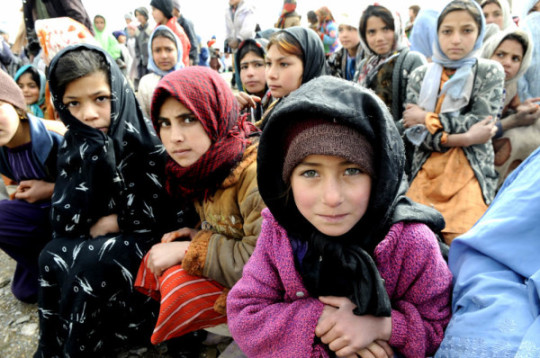
By Yaël Ossowski | Watchdog.org
The U.S. government’s ‘girl power’ foreign policy has been signed
into law, boosting support for a UN aid project to empower girls in
developing countries.
Just last month, President Barack Obama signed the Girls Count Act,
promising government resources “to effectively address the needs of
birth registries in countries where girls are systematically
undercounted.”
In many ways, it is a bipartisan effort. The bill was sponsored by
Sen. Jeanne Shaheen, a Democrat from New Hampshire, and Sen. Marco
Rubio, a Republican from Florida, and passed overwhelmingly.
It’s the latest push for the Obama administration to get more
involved in funding international organizations and their various
missions around the world, something on which the federal government
spends a good amount of money.
“For too long, the critical issue of making sure children
— especially girls — are registered at birth has been overlooked. That
ends now,” said Kathy Calvin, president and CEO of the United Nations
Foundation.
“For girls worldwide who are not registered, the signing of the Girls
Count Act is an opportunity to come out of the shadows and have a
brighter future.”
The United States has no shortage of cash dished out to international
programs and organizations. In fact, it’s the largest donor to
development aid in the world, handing out $35 billion, more than twice
the amount of the next country in line, the United Kingdom.
Most of the money is routed through the U.S. Agency for International
Development, which administers it according to needs determined by the
Department of State.
Though this spending is generally uncontested, there have been efforts to reduce this foreign aid in recent years.
In 2013, Sen. Rand Paul of Kentucky started a campaign to cut off aid to countries hostile to the United States, including Egypt, Pakistan, and even Israel. He even suggested stopping it across the board and even reducing amounts allotted to the United Nations and other international organizations.
Afghanistan, for many years the biggest recipient of U.S. development aid and assistance, faced its biggest cut in aid last year, down to $1 billion from over $2 billion.
“Unfortunately, waste, fraud and abuse has too often been the result
when it comes to the billions we’ve spent in Afghanistan,” said Sen.
Claire McCaskill, a Democrat from Missouri, at the Homeland Security and
Governmental Affairs Committee’s subcommittee on financial and contracting oversight in 2014.
She was joined by many colleagues who seemed wary about increasing
foreign aid and assistance without better measures for ensuring honest
investment.
Such efforts have yet to pick up steam among other members of
Congress, but there has at least been a renewed focus in the course of
examining how the government spends citizens’ dollars on programs
abroad.
How this will look in the new era of an empowered “girl power”
foreign policy by the U.S. government will now be left to the future
Congress.